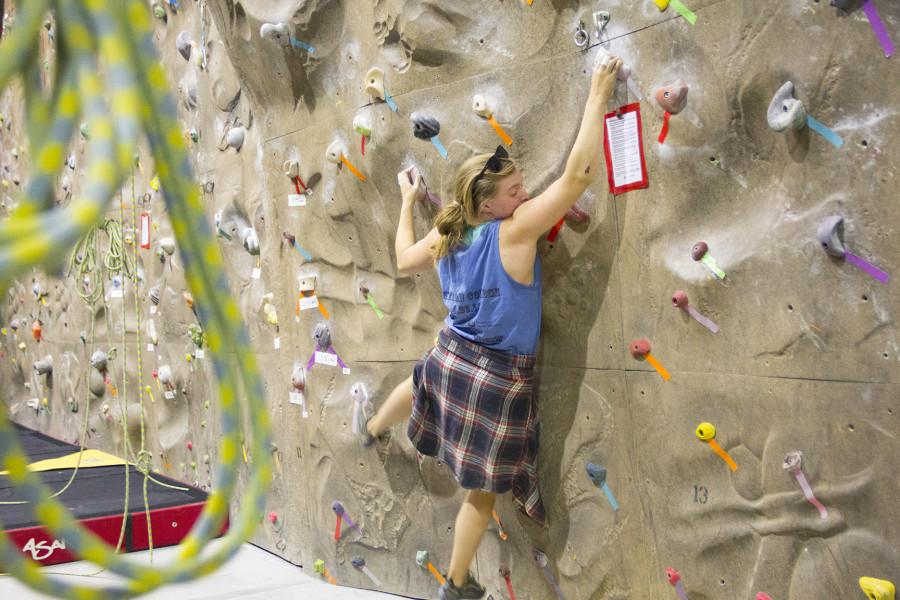Junior Nick Budak began his personal e-book journey only about a month ago, yet he is already a convert––for him, there is no turning back to the days of ordinary print books.
A friend lent him an Amazon Kindle while Budak was studying abroad in Beijing, and he plans to purchase his own very soon. Initially, Budak struggled with the obvious differences between the Kindle and print books.
“The Kindle itself––I was using an old model; they have since gotten even smaller––felt unnaturally devoid of a book’s natural weight, almost to the point of flimsiness,” he said. “I had some reservations about Amazon’s ‘e-ink’ technology––this has also since been revised––which creates a bizarre color inversion effect when you ‘turn a page’ on the Kindle as it loads the new text.”

After using the Kindle a few times, though, he quickly grew accustomed to the new reading experience and is now completely won over by e-books, even delaying doing his homework beyond his normal habits for the sake of pleasure reading on his Kindle.
“I became a convert virtually the moment I picked up the Kindle,” said Budak. “My friends can attest to the fact that, although we were hiking and traveling on the gorgeous Tibetan plateau, I was riveted by the Kindle pretty much every spare moment.”
Not only did his experience with the Kindle equal that of a print book; in some instances, Budak thinks the e-reader surpasses print books because it is more convenient and actually works better.
“The way the screen reads is startlingly like a book. It’s hard to imagine an electronic screen that can so accurately emulate the flat texture of paper unless you’ve actually held one,” he said.
Also, unlike a typical computer or cellphone, the Kindle has an astonishing battery life, making it useful for the student on the go.
“I read at least five mid- to long-length books, including an entire trilogy, over the course of multiple weeks without having to charge the Kindle once. In fact, by the time I returned the Kindle to my friend, I had read everything in her ‘library’ that seemed interesting and the Kindle still had a little battery left,” said Budak.
While most people consider the Kindle to be best for pleasure reading, Budak personally feels that he will rely heavily on his Kindle for academic reading as well. As a politics and Asian studies double major, many of his classes distribute long PDF documents as reading, such as journal articles and book excerpts.
“The Kindle can download and turn anything in PDF format into a ‘book,’ making it the ideal platform for getting class reading done and saving loads of paper from printouts. I’m not normally someone who prints out articles anyway, but the Kindle is definitely preferable to reading off a laptop screen, and way more portable,” he said.
The Kindle also has useful features such as a “percentage display” which tells you how far you are in the book, and gives you the ability to highlight and take note of your favorite quotes. Budak found this made academic reading more exciting as well.
“The Kindle even tells you what passages other Kindle users have highlighted, bringing a social element to reading. Features like these make reading more than fun; it’s addicting to use the Kindle! Unlike with gaming or Facebook, however, we’ve been raised on the principle that reading is good, so I don’t feel guilty when I go on a Kindle binge. I’m learning!” he said.
However, he acknowledges e-books are not for everyone or for every reading type. While he believes that the benefits of Kindle reading outweigh the drawbacks, Budak still is a fan of printed books.
“Many non-popular or niche titles are not yet available on Kindle and I am perfectly comfortable buying the book[s] at a local store. I also like to read self-published or ‘indie’ literature on occasion, and I feel like that kind of work belongs more in a hard copy,” he said.
First-year Laura Ames is a fellow Kindle owner, although she is not quite as convinced as Budak of the Kindle’s virtues.
“The Kindle is very convenient, but I think there’s something about having the book right there. All my favorite books––like ‘Harry Potter’ and ‘Lord of the Rings’––there’s a physical copy that I always read,” she said.
First-year Jeremy Nolan’s preferred method of reading is on a Barnes and Noble Nook; he’s had one for three years.
“It was kind of an impulse buy. I’ve always liked Barnes and Noble, I’ve always enjoyed their products and I like being loyal to a certain brand so I figured I would go with Barnes and Noble,” he said.
Although he currently uses it for pleasure reading and as an “accessory to [his] laptop,” Nolan says he can see himself switching over to all electronic reading in the future.
Unlike the rest of these students, first-year Tino Mori has happily stuck with print books. To him, print books have a special feeling of permanence that makes them more worthwhile. Since our society today is so technology-driven, it’s a nice change to have a print book instead.
“I spend too much time on a screen as it is, writing, doing other stuff. It’s relaxing not to have a screen sometimes,” he said.
His adherence to covers, paper and bindings does come with a bleak realism of what the future might hold for books.
“It’s hard to imagine a future with books, though,” said Mori. “Jetpacks, floating cities … don’t really jive with books.”
While the transition, if it happens, will definitely be gradual and not happen anytime soon, it is impossible to predict if books will ever become obsolete. In a time where vintage and old thrift stores are more popular than ever, we might continue to cherish books.
“Our generation seems to simultaneously be obsessed with leaving the old behind and recapturing the ‘retro’. Given that vinyl, 35mm film and other ‘analog’ forms of data storage have all found a home in the 21st century, I’d say the traditionally printed word will stick around for a while,” said Budak.










